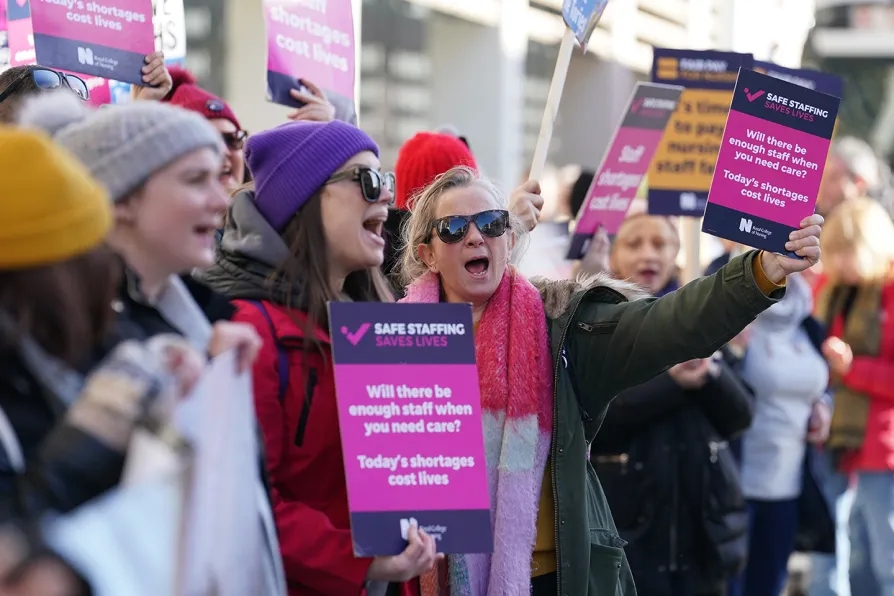A Dutch investigation found seven internationally renowned Holocaust and genocide experts, including Israelis, concluded Israel’s actions in Gaza constitute genocide, despite a campaign of denial and disinformation from the US state, writes TERRY HANSEN

 RCN strikers taking historic action this year
RCN strikers taking historic action this year
WOMEN are under attack in every aspect of their lives. This is true both domestically and internationally. This string of attacks must be confronted and defeated, otherwise we face the risk of many of the gains that were made over decades being wiped away in a couple of years.
As someone who has witnessed those gains and taken part in some of the struggles to achieve them, the pace at which they are being rolled back is truly astonishing.
Yet it is heartening to witness the organised fightback on a series of fronts, which is creating new organisations and leaderships, as well as reinvigorating more well-established ones.

Every Starmer boast about removing asylum-seekers probably wins Reform another seat while Labour loses more voters to Lib Dems, Greens and nationalists than to the far right — the disaster facing Labour is the leadership’s fault, writes DIANE ABBOTT MP

DIANE ABBOTT explodes the anti-migrant myths perpetrated by cynical politicians and an irresponsible mass media

Our Foreign Secretary now condemns Israel in the Commons, yet Britain still supplies weapons and intelligence for its bombing campaigns — as the horror reaches perhaps the final stage, action must finally replace words, writes DIANE ABBOTT MP

The BBC and OBR claim that failing to cut disability benefits could ‘destabilise the economy’ while ignoring the spendthrift approach to tens of billions on military spending that really spirals out of control, argues DIANE ABBOTT MP














